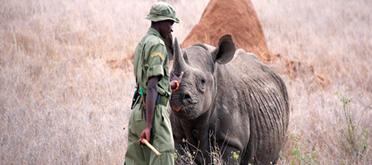Written by Claude Irankunda
Challenges

More animals like elephants, rhinos, lions, cheetahs are dying from poaching than from natural causes because their body parts are being traded illegally trophies and traditional medicine. This is a very serious issue because animals are very important for people and the environment. This is a big problem to many countries in Africa because they depend on wildlife tourism and to the ecosystems that provide resources to other species. Commercial poachers are very equipped with tracking technology, high-power firearms’ and convert transport routes to evade rangers within protected areas. Their operations rely on the corrupt officials who are helping them snick in the parks and poach many different animals and kill them so that they can sell their body parts.
Across the continent’s diverse wild lands, management authorities need data-driven solutions to enhance anti-poaching capacity to allow remaining priority populations to recover from precious and current crises. To be able to stop this crisis from evolving wildlife authorities require more boots on the ground to deter poachers and enforce wildlife laws. With specialized training and appropriate equipment rangers can monitor and protect wildlife populations.
Solutions
Training and equipping wildlife rangers: African wildlife foundation works with wildlife management authorities and local stakeholders to build the capacity of anti-poaching units by equipping rangers and training community scouts. Routine foot patrol missions dismantled poacher camps, seizing poaching, or hunting equipment as well as wildlife parts before they reach market. AWF provided vehicles and bicycles for rangers and village scouts so that if anything happens like human wildlife conflict, they can be able to respond quickly and effectively. Even if the poachers decided use drones there were helicopters scouring the landscape from above, no place was too obscure for poachers or illegal hunters to hide.
Ecological monitoring allows rapid response to urgent wildlife threats: By installing GPS enabled collars on individual animals it allows rangers not only to protect wildlife, but alert local communities on large carnivore sightings, preventing human-wildlife conflict and livestock predation.
Empowering local communities through conservation: AWF engages community members in sustainable conservation-friendly economic activities that protect wildlife and maintain their habitats and these local level interventions reduce the risk of people living alongside wildlife turning into commercial poachers or bushmeat hunters.
This does not stop from here because many developing African countries are in need of help from everyone around the world to donate whatever they can so that they can be able have enough equipment’s to keep the wildlife vulnerable species safe from poachers and illegal hunters who are trying to destroy our ecosystems.


